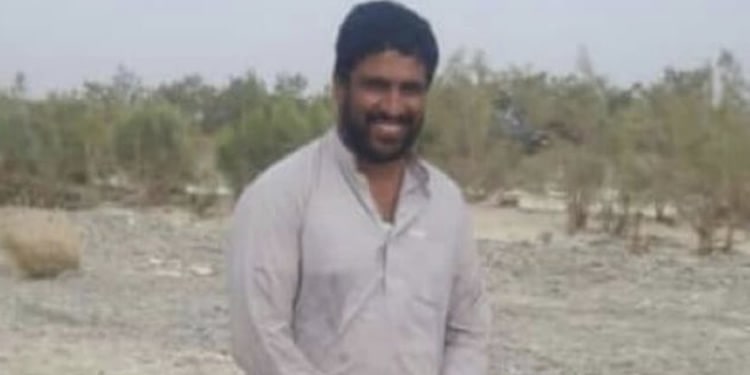Iran-HRM – A Baluch fuel carrier was killed on Tuesday by the agents of the Islamic Revolutionary Corps at a border region in Sistan and Baluchestan Province, southeastern Iran.

The fuel carrier identified as Aslam Haji Zehi, had attempted to circumvent the road as the border region had been blocked. But the IRGC forces shot him to death in Kolehgan region in Saravan.
The Iranian regime’s security forces and police have a history of shooting and killing civilians. There are almost daily reports of police and border guards opening fire on Kurd border porters in western Iran and civilians carrying fuel in southeastern Iran.
In one of the latest cases, a fuel carrier identified as Mohsen Moradzehi was killed by police on April 12 in Khash, southeastern Iran. He was shot in a car chase that caused the car to overturn.
An annual report by the Baloch Activists Campaign said that at least 46 fuel carriers were killed by the IRGC and the state security forces in 2020.
In the absence of a formal economy and few job opportunities in Sistan and Baluchestan, many depend on transportation of fuel as a means of survival.
Hundreds of fuel traders are being held in the buffer zone by the IRGC and the Pakistani army since more than a week ago. The IRGC has blocked the highway to prevent transporting fuel in the border area.
At least five fuel traders held in the buffer zone have passed away so far from heat and lack of access to food or water.
The Razzagh Plan
The Razzagh Plan proposed to allocate fuel quotas to border residents in an attempt to quell protests. According to state run media, the IRGC closed the southeastern border area on February 22 to “organize” fuel carriers according to the Razzagh Plan.
In the plan, locals living in a 20-kilometer radius of the border are allowed to buy fuel and transport it across the border to sell. This is while many fuel carriers are impoverished people living on the outskirts of small towns more than 20 kilometers from the border. Only those with an IRGC-approved ID card can transport fuel across the border and those who are not registered become easy targets for the regime.
Many believe that the IRGC sees fuel carriers as a rival and that the new Razzagh Plan is a way for the IRGC to monopolize the selling of fuel to score a profit.
 Shabtabnews In this dark night, I have lost my way – Arise from a corner, oh you the star of guidance.
Shabtabnews In this dark night, I have lost my way – Arise from a corner, oh you the star of guidance.


